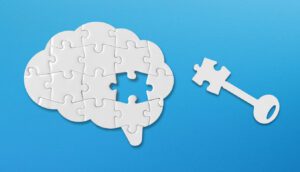What’s the Difference Between Alzheimer’s and Dementia?

Although the words “Alzheimer’s” and “dementia” are often used interchangeably, they aren’t quite the same thing. It’s important to know the differences between their symptoms and how they progress, so you can find more effective ways to manage symptoms and make more informed care decisions for your loved one.
Dementia is an umbrella term for a decline in cognitive function, encompassing various conditions that affect memory, thinking, behavior, and emotion. Dementia is a general term for a decline in mental ability severe enough to interfere with daily life, often including memory loss, and is not a specific disease, but rather a group of symptoms caused by damage to brain cells.
On the other hand, Alzheimer’s is a form of dementia and is a disease. Interestingly, it’s the most common type of dementia, accounting for 60 – 80% of all dementia cases. Eight other major types of dementia make up the other 20 – 40% of dementia cases.
Contrary to what some think, dementia is not a normal part of aging. Instead, it’s caused by physical changes in the brain, usually triggered by diseases like Alzheimer’s, traumatic brain injury (TBI), or mini strokes. It goes much deeper than just simple memory lapses, like forgetting your name or where you parked. Since there are various types of dementia, specific symptoms depend on the parts of the brain that are damaged, and on the disease causing the dementia. Generally, someone with dementia struggles with two or more of the following symptoms: memory, communication and speech, focus and concentration, reasoning and judgment, or visual perception (when you see things that aren’t there, or can’t see color or detect movement).
After Alzheimer’s, the second most common type of dementia is vascular dementia, which is usually caused by strokes or transient ischemic attacks (TIA, or mini-strokes). Other conditions that can cause dementia symptoms are Parkinson’s (which is not reversible), or reversible conditions such as urinary tract infections (UTIs), delirium, thyroid problems, or vitamin deficiencies.
In contrast to general dementia, Alzheimer’s is a progressive brain disease that generally develops slowly and worsens over time. The sixth leading cause of death in the United States, it currently has no cure. Current FDA-approved treatments can help reduce or delay symptoms, but they typically work best during the onset of the disease.
While Alzheimer’s symptoms are unpredictable, the disease causes problems with cognitive functions like decision-making, behavior, memory, and judgment. In the early stages, memory loss and other symptoms are generally mild. As the disease progresses, however, later-stage symptoms include communication problems, loss of mobility, problems eating, complete dependence on others, incontinence, and challenging behaviors. It’s common for people with late-stage Alzheimer’s to wander off, ask repetitive questions, ask to go “home,” or rummage constantly. Over time, it will get progressively harder for the individual to perform everyday tasks or carry on a normal conversation.
It’s interesting to compare the symptoms of dementia with those of Alzheimer’s. Since both cause cognitive impairment, some symptoms overlap. For example, both cause impaired memory, a decline in the ability to think and reason, and impaired speaking and communication skills. In addition, Alzheimer’s symptoms in particular typically include confusion; disorientation; impaired judgment; loss of short-term memory; behavioral changes; and difficulty speaking, swallowing, or even walking.
One type of dementia known as Lewy body dementia (LBD) has similar symptoms as Alzheimer’s, with additional symptoms such as visual hallucinations, difficulties with balance, and disturbed sleep. The variation of dementia caused by Parkinson’s often presents with speech changes, tremors, slowed movements, and rigid muscles and joints.
In short, any type of condition or disease caused by cognitive impairment will have some similar symptoms, but each variation of dementia has additional specific symptoms. It’s wise to get to know them if your loved one suffers from dementia, so you can better manage their symptoms and make better care decisions.
